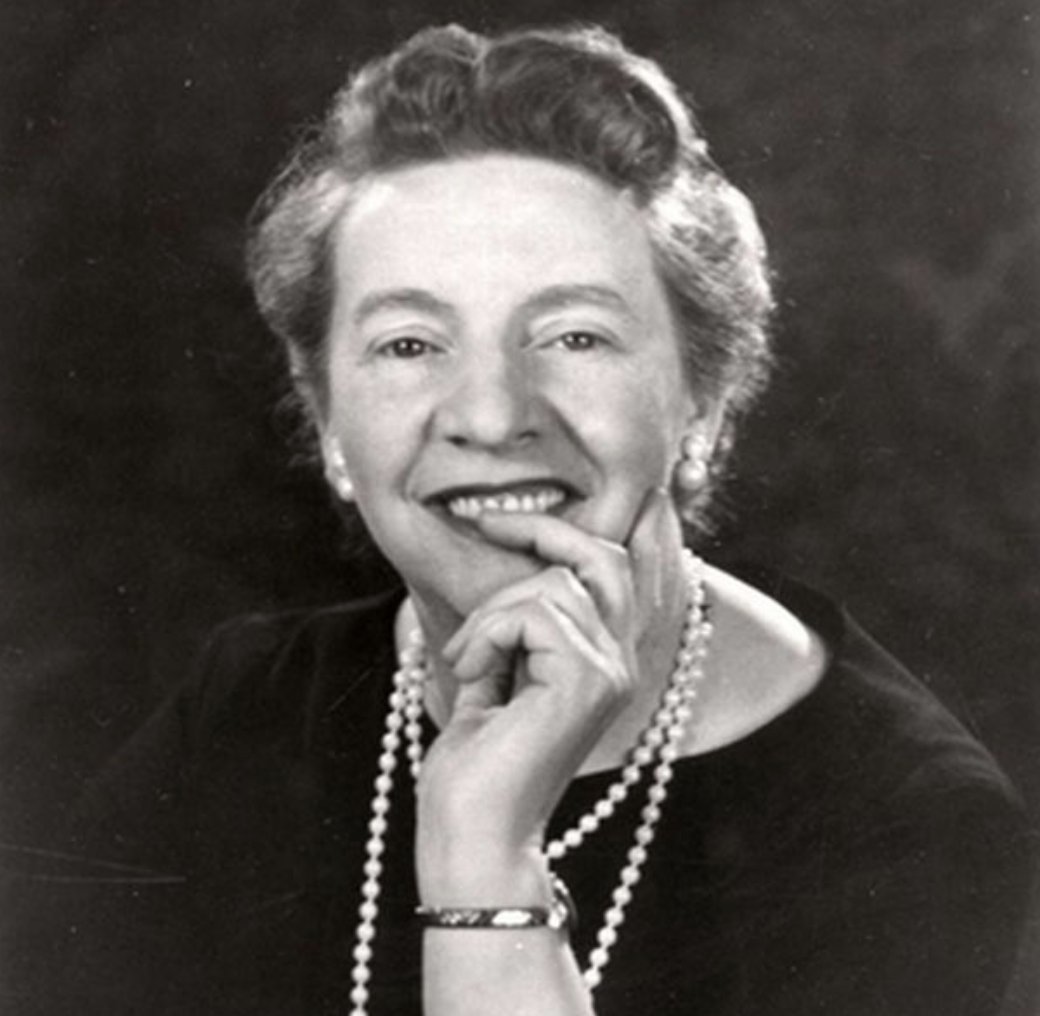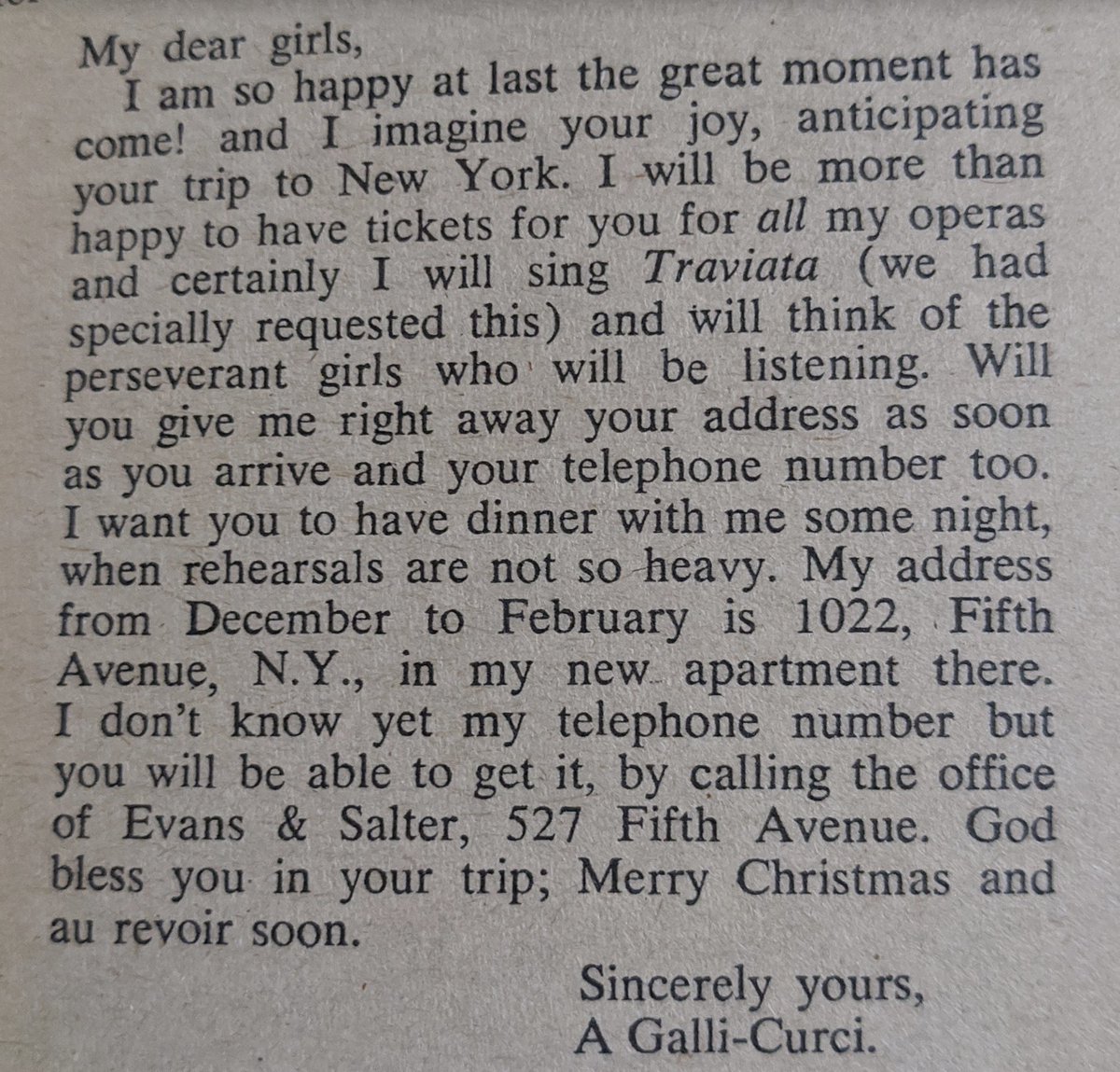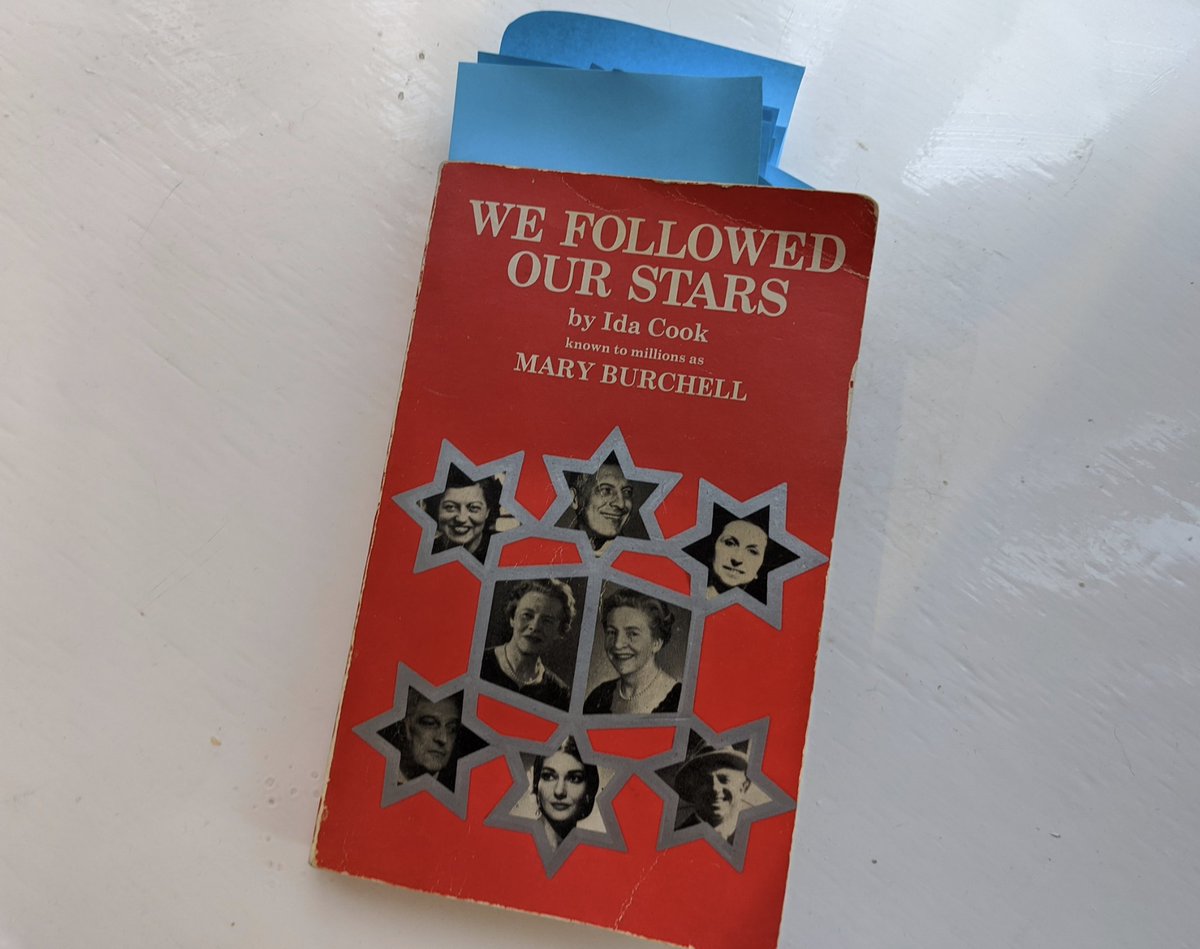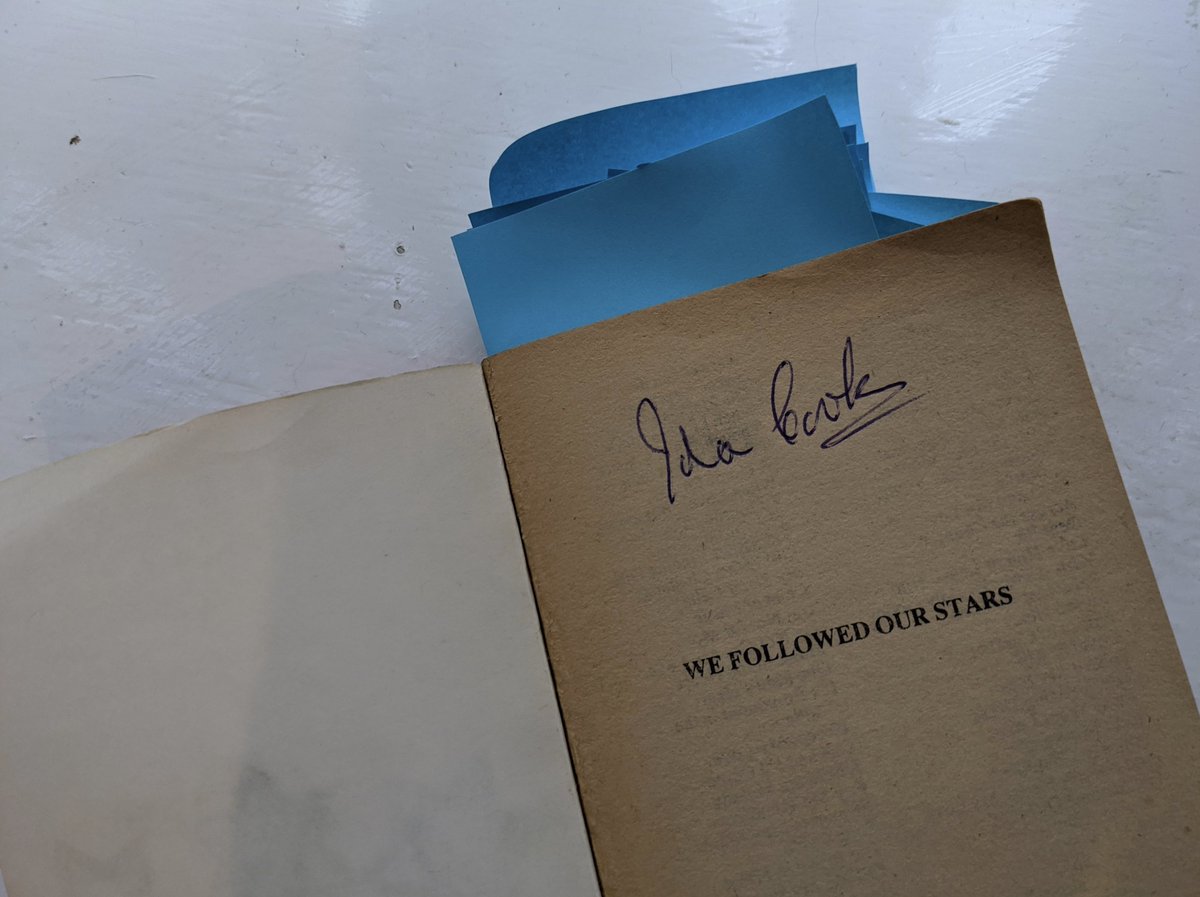Thread time!
Meet Mary Burchell, one of the most successful romance writers EVER. Over 110 Mills & Boons to her name.
Got an image of her in your head now, right? Bin it.
Because Mary is a Righteous Gentile.
She wrote books to fund her efforts to help Jews escape Nazi Germany
Meet Mary Burchell, one of the most successful romance writers EVER. Over 110 Mills & Boons to her name.
Got an image of her in your head now, right? Bin it.
Because Mary is a Righteous Gentile.
She wrote books to fund her efforts to help Jews escape Nazi Germany
Mary was born Ida Cook (and we& #39;ll call her & #39;Ida& #39; from now on) in Sunderland in 1904. Her parents were an average middle class couple, and Ida and her sister Louise had a sheltered, happy upbringing mostly in London (their mother was a proper & #39;Bow Bells& #39; cockney).
One thing their parents were very good about was just letting the girls be themselves.
As a result, by the 1920s Ida and Louise were both working in secretarial roles, happily living their own lives, but together. They would remain life-long companions.
As a result, by the 1920s Ida and Louise were both working in secretarial roles, happily living their own lives, but together. They would remain life-long companions.
Then, one day, Louise happened to go to a lecture on music at work.
IT
BLEW
HER
MIND
Their parents hadn& #39;t been musical, so this was a new world to her. Obviously she immediately wanted to share it with Ida.
They immediately bought a gramophone with Louise& #39; bonus money.
IT
BLEW
HER
MIND
Their parents hadn& #39;t been musical, so this was a new world to her. Obviously she immediately wanted to share it with Ida.
They immediately bought a gramophone with Louise& #39; bonus money.
Ida:
"Could any collector cast his mind back to the days when he accumulated his first two or three records and say that was honestly not one of the happiest times of his life?"
One of those records for them was this one. It HOOKED them on Opera. https://www.youtube.com/watch?v=x5nveWBzFdU">https://www.youtube.com/watch...
"Could any collector cast his mind back to the days when he accumulated his first two or three records and say that was honestly not one of the happiest times of his life?"
One of those records for them was this one. It HOOKED them on Opera. https://www.youtube.com/watch?v=x5nveWBzFdU">https://www.youtube.com/watch...
Ida and Louise FANGIRLED OUT on opera. Went to ever performance they could. They boldly wrote to Amelita Galli-Curci and told her they planned to save for 2yrs so they could come see her in New York.
To their amazement she wrote back: Do it. I& #39;ll make sure you get tickets myself
To their amazement she wrote back: Do it. I& #39;ll make sure you get tickets myself
And you know what? THEY DID IT.
Because this is the thing to remember about Ida and Louise. If they were determined to do something they did it.
Galli-Curci was so tickled by it, that they soon became friends. Through her they started meeting OTHER opera stars too.
Because this is the thing to remember about Ida and Louise. If they were determined to do something they did it.
Galli-Curci was so tickled by it, that they soon became friends. Through her they started meeting OTHER opera stars too.
Jump forward a bunch of years. Ida is now beginning to write. It started with a piece for a sewing mag on the dress she made for their New York trip, but soon she& #39;s writing short romantic stories. Then series. Then finally Charles Boon asks her to write books for Mills & Boon.
And those books start to sell. Suddenly, she& #39;s late twenties, and earning the equivalent of 70-80k a year.
So OF COURSE she spends that on constant weekend trips for her and Louise to go to MORE operas throughout Europe, mostly Germany.
Ida and Louise are living their best life
So OF COURSE she spends that on constant weekend trips for her and Louise to go to MORE operas throughout Europe, mostly Germany.
Ida and Louise are living their best life
On one of these trips in 1934, they& #39;re chilling with Viorica Ursuleac and conductor Clemens Kraus (as you do) when Ursuleac introduces them to another lady, Mitia Mayer-Lismann. Ursuleac asks a favour: will they look after Mitia as she& #39;s coming to England? https://www.youtube.com/watch?v=QiqxG5-kuyA">https://www.youtube.com/watch...
Ida and Louise agree. At the station when they all leave together, they hear Ursuleac say seriously to Mitia:
"Now you will be alright"
Back in England, they ask Mitia what Ursuleac meant.
"I& #39;m Jewish." She replies, confused. "Didn& #39;t you know?!"
"Now you will be alright"
Back in England, they ask Mitia what Ursuleac meant.
"I& #39;m Jewish." She replies, confused. "Didn& #39;t you know?!"
Mitia then opens their eyes to everything that is starting to happen in Germany under the Nazis that they& #39;re not seeing. That Jews need to escape.
Ida thinks about the money she& #39;s earning.
"[I had a] terrible, moving and overwhelming thought - I could save life with it."
Ida thinks about the money she& #39;s earning.
"[I had a] terrible, moving and overwhelming thought - I could save life with it."
At this point, the only way out of Germany to Britain is through a work visa (women could get & #39;domestic service& #39; visas) or if you have proven income/cash reserves. But for for either you need a guarantee.
Ida starts using her book money to guarantee as many people as she can.
Ida starts using her book money to guarantee as many people as she can.
Word spreads in Germany. Letters and telegrams start arriving with pleas for help. Ida starts to get organised. They start tapping up friends for guarantees and small donations, so she starts funds to get more people out.
Ida/Louise go to Germany at weekends. They have to make heartbreaking decisions about who they can help and who they can& #39;t, then try and get the visas all through the British Immigration system and approved
Often, on their journey back, they smuggle jewellery from Jews into England which the Nazis won& #39;t let them take, so they& #39;ll have some capital when they arrive.
Ida buys a flat in London for Jewish refugees to stay in while they settle before going to their guarantor.
Ida buys a flat in London for Jewish refugees to stay in while they settle before going to their guarantor.
The situation in Germany deteriorates. The German authorities start to get suspicious about their visits. Clemens Klaus comes up with a clever plan. From then, they tell him where they need to go and he organises a performance in that town/city to give them an excuse to be there.
By 1937 the situation is dire. Visas are harder to get. People are disappearing or dying. They never stop trying.
Ida:
"We cried, of course. And then we would start again. What else could we do?"
Ida:
"We cried, of course. And then we would start again. What else could we do?"
Back in England Ida doubles down on writing. The more she writes, the more money she makes, the more people they can save.
Then SUDDENLY in 1938 a new visa scheme: if people are on the waiting list for the USA, they can stay in Britain IF they have a financial guarantor too!
Then SUDDENLY in 1938 a new visa scheme: if people are on the waiting list for the USA, they can stay in Britain IF they have a financial guarantor too!
Ida and Louise redouble their efforts. Ida speaks at church groups, to random people at restaurants who show an interest. Anyone. She& #39;s blunt with them:
People are dying. If we club together the money, and guarantee them somewhere to live, we can SAVE them.
People are dying. If we club together the money, and guarantee them somewhere to live, we can SAVE them.
Despite the worsening diplomatic situation they still make trips to Germany. They know war is coming. Now every moment, every visit is potentially a life saved. In July 1939 Ida goes to Frankfurt, alone, to try and unstick a visa and get a family out.
The problem is that the British Vice-Consul in Berlin has refused the mother& #39;s visa. Ida goes to the Vice-Consul in Frankfurt, where the family are hiding, to try and beg him to sort it out somehow.
What Ida doesn& #39;t realise is that this Vice-Consul, Robert Smallbones has been doing the same as her. He is the man who bullied the government to create the US visa option. The & #39;Smallbones system& #39; will ultimately save 40,000 lives.
Ida and Smallbones together save the family.
Ida and Smallbones together save the family.
Ida and Louise still don& #39;t stop. In August 1939 she gets a letter from a Polish boy in the Zbasyn holding camp. The kid is on the US list - no. 16,500ish. But that& #39;s a three year wait so he can& #39;t find a guarantor. Ida knows war is coming but this is One. More. Life. That matters.
She begs, pleads calls in favours and finds a church group that will agree to take him if she can find the money to help pay for his stay.
Time is of the essence.
She digs into her own pockets again. She telegrams the boy: we& #39;re getting you out. Don& #39;t worry.
Time is of the essence.
She digs into her own pockets again. She telegrams the boy: we& #39;re getting you out. Don& #39;t worry.
She goes to the Immigration Office to sort the visa and talks to the clerk who normally handles her cases. The woman looks aghast:
They can& #39;t give this kid a visa. New rules as of yesterday. Only people number 16,000 on the US list or under.
They can& #39;t give this kid a visa. New rules as of yesterday. Only people number 16,000 on the US list or under.
Ida tells her that this kid will die if they don& #39;t get him out. They need to do something, then the clerk comes up with a plan and tells Ida to trust her:
"Go home, and take this with you." She says, handing Ida the completed and signed application form.
"Go home, and take this with you." She says, handing Ida the completed and signed application form.
The next day, Ida gets an official letter from the clerk:
"Please submit the missing paperwork we finalised three days ago."
She& #39;d realised that this was a way round the rule change. The application date is fudged. The visa goes through.
"Please submit the missing paperwork we finalised three days ago."
She& #39;d realised that this was a way round the rule change. The application date is fudged. The visa goes through.
But by now there are no trains or regular ways to get him out of Poland. Ida asks around, she discovers that if they can pay his fare there& #39;s a chance he can get on the last boat of child refugees out. She wires her own money over immediately to cover it.
The next day finds her at the docks, waiting. Hoping. With only a passport photo of the boy. Did he make it?
And then she sees him. He tells her he was the last person on, made it just as they were pulling up the gangway.
He is the last life Ida and Louise manage to save.
And then she sees him. He tells her he was the last person on, made it just as they were pulling up the gangway.
He is the last life Ida and Louise manage to save.
Between them, Ida and Louise DIRECTLY oversaw 29 successful cases. Not lives (as is often written online) CASES. Many were families, which they had to get creative about splitting up so they could reunite them (hopefully) later.
They facilitated a lot more cases indirectly too.
They facilitated a lot more cases indirectly too.
Ida and Louise weren& #39;t special. They were normal people and, by Ida& #39;s own admission, terrified almost every step of the way.
But once they had their eyes opened to what was happening, they knew they had to help. And Ida worked hard to try and make others see that too.
But once they had their eyes opened to what was happening, they knew they had to help. And Ida worked hard to try and make others see that too.
Ida:
"Terrified, agonized need can be ignored if it is attached only to a name on paper.
Change [that] to a human who stammers out a frantic story, weeps difficult tears and asks for nothing but hopes for everything, and show me the ordinary person who can refuse"
"Terrified, agonized need can be ignored if it is attached only to a name on paper.
Change [that] to a human who stammers out a frantic story, weeps difficult tears and asks for nothing but hopes for everything, and show me the ordinary person who can refuse"
Both Ida and Louise were recognised as Righteous Among the Nations in 1964. Yet their lifesaving work remains practically unknown.
This is partly because Ida didn& #39;t like to talk about it.
This is partly because Ida didn& #39;t like to talk about it.
Her small autobiography (I am proud to have a signed copy) talks about it almost in passing. It& #39;s mostly, charmingly about opera.
Why? It& #39;s pretty clear that she spent her life regretting and feeling guilty that they somehow didn& #39;t manage to save more people.
Why? It& #39;s pretty clear that she spent her life regretting and feeling guilty that they somehow didn& #39;t manage to save more people.
I think she& #39;s wrong. Kindness matters most at the darkest times, but that& #39;s when it is hardest to be kind. They did so much at a time when it would have been far easier to just do nothing.
They& #39;re both goddamn heroes to me.
They& #39;re both goddamn heroes to me.
Toss a coin to your Tweeter!
Enjoyed this? you can buy me a coffee here! https://ko-fi.com/garius
If">https://ko-fi.com/garius&qu... you want to know more about Ida and Louise, you can buy Ida& #39;s autobio here. They reprinted it with a new title, but trust me it& #39;s mostly about Opera. https://abs.twimg.com/emoji/v2/... draggable="false" alt="😂" title="Face with tears of joy" aria-label="Emoji: Face with tears of joy"> https://www.amazon.co.uk/Safe-Passage-Mary-Cook-ebook/dp/B003ZDORNA/ref=sr_1_1?keywords=safe+passage+ida+cook&qid=1579873882&s=books&sr=1-1">https://www.amazon.co.uk/Safe-Pass...
https://abs.twimg.com/emoji/v2/... draggable="false" alt="😂" title="Face with tears of joy" aria-label="Emoji: Face with tears of joy"> https://www.amazon.co.uk/Safe-Passage-Mary-Cook-ebook/dp/B003ZDORNA/ref=sr_1_1?keywords=safe+passage+ida+cook&qid=1579873882&s=books&sr=1-1">https://www.amazon.co.uk/Safe-Pass...
Enjoyed this? you can buy me a coffee here! https://ko-fi.com/garius
If">https://ko-fi.com/garius&qu... you want to know more about Ida and Louise, you can buy Ida& #39;s autobio here. They reprinted it with a new title, but trust me it& #39;s mostly about Opera.
ADDENDUM: I& #39;ve now done a thread specifically about the incredible work of Robert Smallbones to help save lives too. You can read that here: https://twitter.com/garius/status/1380857911983890432">https://twitter.com/garius/st...

 Read on Twitter
Read on Twitter





